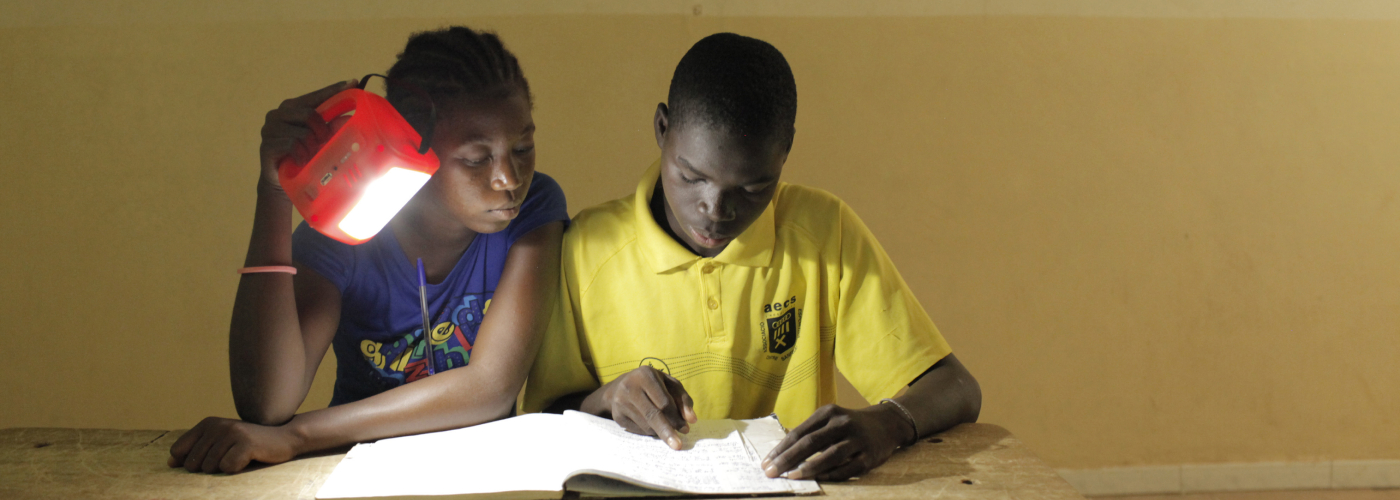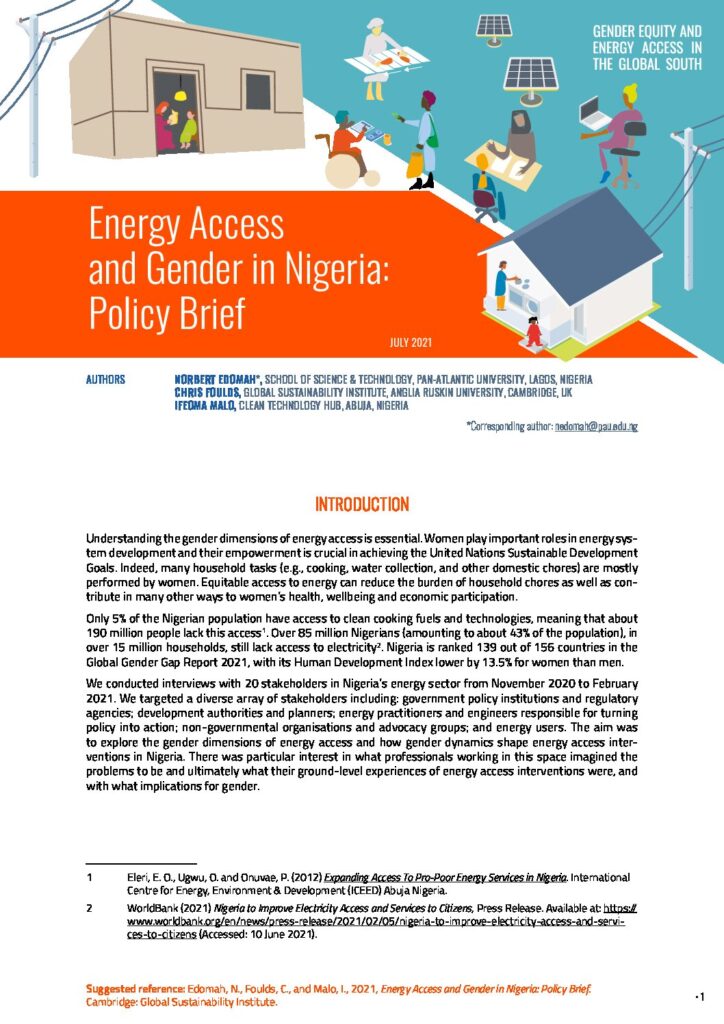Understanding the gender dimensions of energy access is essential. Women play important roles in energy system development and their empowerment is crucial in achieving the United Nations Sustainable Development Goals. Indeed, many household tasks (e.g., cooking, water collection, and other domestic chores) are mostly performed by women. Equitable access to energy can reduce the burden of household chores as well as contribute in many other ways to women’s health, wellbeing and economic participation.
Only 5% of the Nigerian population have access to clean cooking fuels and technologies, meaning that about 190 million people lack this access. Over 85 million Nigerians (amounting to about 43% of the population), in over 15 million households, still lack access to electricity. Nigeria is ranked 139 out of 156 countries in the Global Gender Gap Report 2021, with its Human Development Index lower by 13.5% for women than men. We conducted interviews with 20 stakeholders in Nigeria’s energy sector from November 2020 to February 2021. We targeted a diverse array of stakeholders including: government policy institutions and regulatory agencies; development authorities and planners; energy practitioners and engineers responsible for turning policy into action; non-governmental organisations and advocacy groups; and energy users. The aim was to explore the gender dimensions of energy access and how gender dynamics shape energy access interventions in Nigeria. There was particular interest in what professionals working in this space imagined the problems to be and ultimately what their ground-level experiences of energy access interventions were, and with what implications for gender.








